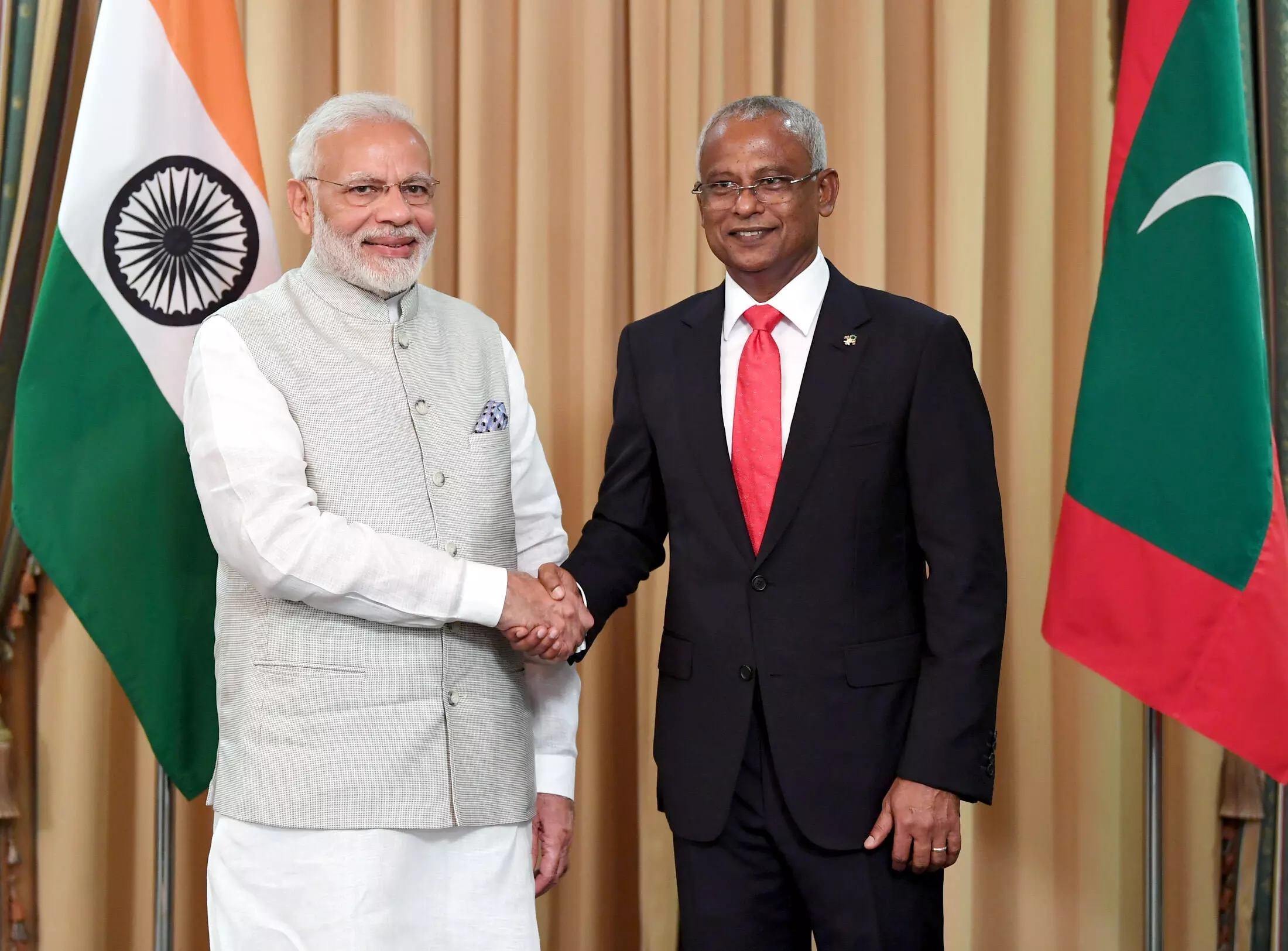Contrasting Realities: Boycott Maldives vs. Digital Diplomacy vs Tourism
Over recent years, tensions between India and the Maldives have been on the rise, marked by accusations of Indian interference in the Maldives' domestic affairs
image for illustrative purpose

Over recent years, tensions between India and the Maldives have been on the rise, marked by accusations of Indian interference in the Maldives' domestic affairs. President Mohamed Muizzu's calls for India to withdraw its military personnel and the nation's perceived inclination towards China have further strained relations.
The digital clash escalated when Maldivian Deputy Minister Mariyam Shiuna made contentious remarks about Modi, triggering widespread calls for boycotting the Maldives. This digital outcry was significant, echoing across various sectors of Indian society, including celebrities and social media influencers.
Amidst this fervour, however, travel statistics present a compelling counter-narrative. Despite the digital clamour for boycotting Maldives, data reveals a steady and pronounced increase in Indian Nationals’ Departures (INDs) from the country to Maldives.
As per the report published on the government tourism site in 2021(https://tourism.gov.in/market-research-and-statistics), INDs surged by 17.30 per cent compared to the previous year. Air travel constituted the predominant mode of departure and Maldives featured prominently among the top 10 source nations for Indian Nationals’ Departures (INDs) in 2021, underscoring its enduring allure as a favoured travel destination. Furthermore, Foreign Tourist Arrivals (FTAs) from the Maldives witnessed an exceptional growth rate of 82.8 per cent in 2021 compared to the preceding year, signalling a sustained interest in visiting this tropical haven.
Despite the digital calls for a boycott, Maldives contributed 1.7 per cent to India's total FTAs in 2021, securing 11th position in the arrivals list. These tourists primarily engaged in medical tourism, revealing Maldives’ enduring appeal for specialized healthcare services. The travel data paints a more nuanced picture that diverges from the digital narrative of a boycott.
In essence, while the digital sphere amplifies diplomatic tensions, the resilient travel interest in Maldives and vice versa portrays a more complex reality. The statistics paint a different picture in the digital age, urging a nuanced understanding beyond the realm of trending hashtags.
Digital Diplomacy
India's diplomatic engagements have occasionally clashed with the amplified voices on social media. One such instance was the India-Canada discord following Canada's accusation of India's involvement in the killing of Sikh separatist leader Hardeep Singh Nijjar. While Delhi officially denied the charges, a vocal segment of Indian social media, largely swayed by assertive nationalist sentiments, endorsed the "ghar mein ghus ke maarenge" (we will enter your homes and kill) doctrine. This stance vastly propagated on social platforms, celebrated India's perceived triumph over Canada, showcasing a dissonance between official diplomacy and online narratives.
Another instance highlighting this dichotomy emerged during the Israel-Palestine conflict. India's official stance called for a humanitarian pause and extended aid to Palestine. However, right-wing and Hindu nationalist accounts on social media, through their anti-Palestinian and Islamophobic disinformation campaigns, presented a starkly contrasting narrative. These accounts vocally supported Israel, often coupling the Indian flag with the Israeli one, diverging significantly from the government's balanced approach.
Social Media's Impact on Diplomacy
The influence of social media on diplomatic relations poses several challenges. Firstly, it introduces complexities in maintaining a consistent foreign policy. The disconnect between official positions and social media-driven narratives risks creating confusion and uncertainty in the international arena. Such inconsistencies might affect long-standing alliances and diminish diplomatic leverage.
Moreover, the potential consequences of diverging public sentiment from official positions are far-reaching. Diplomatic relations could be strained, leading to isolation or misunderstandings with other nations. This digital schism has the power to sway public opinion, often driven by viral trends and momentary emotions, influencing decisions that might not align with the country's strategic objectives or global obligations.
Navigating the Diplomatic Conundrum
The prevalence of contradictory narratives between official diplomacy and social media-driven discourses poses a formidable challenge for developing economies like India. The intricate interplay between domestic politics and international relations through social platforms signifies the evolving landscape of diplomacy. This trend accentuates the need for governments to effectively engage with public sentiments while navigating the complexities of global diplomacy.
As social media continues to evolve as a potent force in shaping public opinion, reconciling divergent narratives with official diplomatic positions remains pivotal. Striking a balance between harnessing the influence of social media and upholding consistent and prudent foreign policy decisions is crucial to maintaining diplomatic efficacy and credibility on the global stage. Achieving this balance will determine a nation's ability to shape coherent and effective diplomatic strategies amid the digital cacophony.

